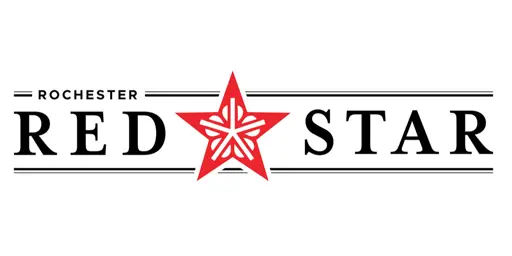Getting Grounded: Squirreling up for Winter - Rochester Red Star
Getting Grounded: Squirreling up for Winter - Rochester Red Star

Getting Grounded: Squirreling up for Winter - Rochester Red Star

by Elizabeth Henderson
Our long-tailed rodent neighbors, the squirrels set an example for us humanoids to imitate—when harvests are plentiful, they stash food away for the winter, much to the annoyance of city gardeners who find their veg and flower beds full of holes. We have many more storage choices—we could dig a deep hole, but we can also dry, can, juice, freeze and root-cellar the foods we wish to preserve.
At area farmers markets or direct from farmers, you can buy large quantities of locally grown produce at much lower prices than when you buy a single pound of fruit or head of broccoli. Bulk prices are lower for a few reasons. When every local farm has tomatoes, the large supply lowers the price, especially since tomatoes are also still coming in from points west and south. Selling a large quantity costs a farmer less in time and materials for packaging and marketing. Often, farmers sell the very best-looking produce at the highest price they can get and then sell “seconds” for less. Produce that appears perfect is not necessarily any better to eat. In fact, it may have more residues from the chemicals used to achieve that perfection.
There are many good sources of information on putting food by—books, videos, classes at the Monroe County Cooperative Extension, Taproot and 490 Farmers. The easiest way is to learn from someone who knows how—volunteer to help a skilled friend. (I will keep DSA Ecosoc posted on when I plan to can!) Or you can hold a canning party where friends make sauce or prep veggies to freeze together. You have to cook most vegetables for a few minutes before you freeze them. I have posted my CSA Cookbook: Food Book for a Sustainable Harvest on the DSA Slack. Along with recipes, I include information about storing vegetables short and long term, a bit of history of each crop and what nutrients it provides.
Although canned tomato sauce is relatively inexpensive, I like to make big batches of my own sauce. I can the sauce in quart bell jars using the hot-pack method. I boil the jars and fill them while still hot with hot sauce. As the sauce cools, you can hear the lids click as a vacuum forms at the top of the jar.
According to Your Money or Your Life by Vicki Robin and Joe Dominguez, investing in a chest freezer pays for itself faster than almost any other investment you can make. During the warm months, I fill our freezer with enough jars of berries that I pick myself to liven up my oatmeal all winter. A few nights a week, I cook twice as much for dinner as we can eat so that I can freeze half to eat later. In good years, we eat summer-cooked meals out of the freezer into March or April. Since you have to cook low-acid vegetables like cucumbers for a long time to prevent botulism, I freeze the dill pickles I make in quart jars. I also keep a 25-pound sack of rice in the freezer to prevent grain moths from getting into it.
If you have a cool space in a cellar or a section of a porch or garage that does not freeze, you can store bins of potatoes and other root crops. Onions and garlic need a drier space that is also cool.
Two of my favorite crops—red peppers and leeks—are very expensive most of the year. In September, you can find both vegetables at lower prices. Peppers are easy to freeze. You just wash them, clean out the seeds, cut them up and freeze them without any cooking. Leeks will keep for months with their roots in a bit of soil in a bucket in a cellar or garage. You may have to peel off an outer leaf that has turned yellow, but the center will still be good.
Renters with small or shared apartments might be able to partner with comrades who have more space. If ROC DSA ever gets an office, it could include a big chest freezer and shelves to store members’ canned food. A place to store your squirrel bulk might be a great benefit for the chapter to offer!
Remember to sign up for the Soil Health Field Day, Tuesday, September 16, 3:00pm – 6:00pm at the Foodlink Community Farm, 585 Lexington Ave, Rochester. You will get free cover crop seed if you a part of a community garden!
Register: bit.ly/roc-soil. The program will start promptly at 3:00 PM. Light refreshments provided
Topics include:
- Cover cropping in small spaces- species selection, seeding and termination strategies
- Cover crop demonstration plots
- Building soil health in raised beds
- Best practices for dealing with heavy metals soil contamination in the urban environment
- Soil health demonstrations on impacts of cover crop and other management practices from NY Soil Health
COST: FREE, but pre-registration is required. Space is limited!